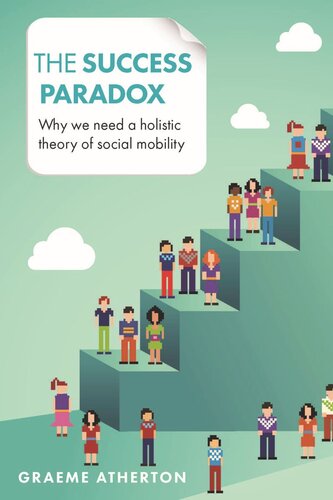

Most ebook files are in PDF format, so you can easily read them using various software such as Foxit Reader or directly on the Google Chrome browser.
Some ebook files are released by publishers in other formats such as .awz, .mobi, .epub, .fb2, etc. You may need to install specific software to read these formats on mobile/PC, such as Calibre.
Please read the tutorial at this link: https://ebookbell.com/faq
We offer FREE conversion to the popular formats you request; however, this may take some time. Therefore, right after payment, please email us, and we will try to provide the service as quickly as possible.
For some exceptional file formats or broken links (if any), please refrain from opening any disputes. Instead, email us first, and we will try to assist within a maximum of 6 hours.
EbookBell Team

5.0
78 reviewsSocial mobility needs a re-boot. The narrow, economistic way of measuring it favoured by politicians and academics is unsustainable and is contributing to rising inequality. This timely book provides an alternative, original vision of social mobility and a route-map to achieving it. It examines how the term ‘social mobility’ structures what success means and the impact that has on society. Providing a new holistic approach that encompasses education, the economy and politics, Atherton recasts the relationship with employers, embracing radical opportunities provided by technology and rethinking what higher education means. He also goes beyond employment to incorporate progress in non-work areas of life. Based on the need to improve well-being, not just income or occupation, the book addresses one of the key issues facing 21st century society in a new way and provides valuable insights for policymakers and academics.